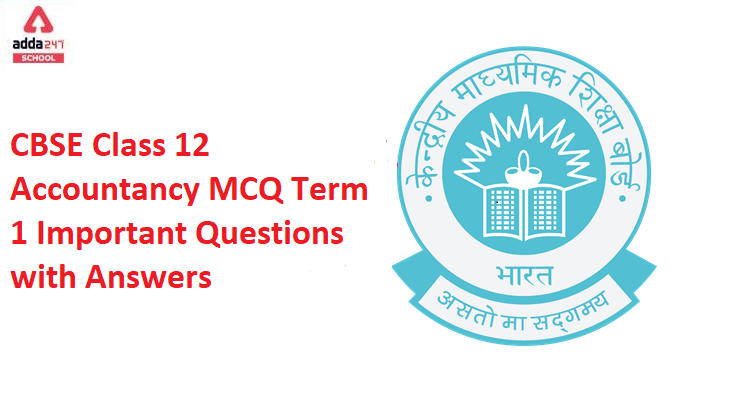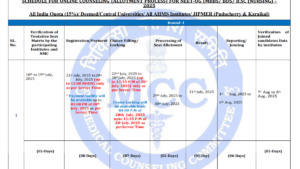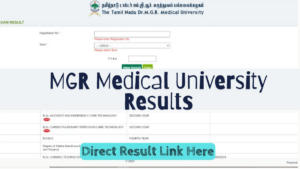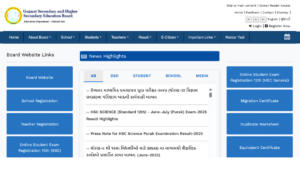Class 12 Accountancy MCQ
Central Board of Secondary Education is going to conduct the Class 12th Accountancy examination on 13th December 2021. Students appearing in the exam must read the important accountancy MCQs given on this page. The MCQs are based on the previous year’s pattern and prepared by our expert faculties. Accountancy MCQs given on this page will surely help students to boost their scores. Students must bookmark this page and refer to the important MCQs given on this page, and revise them till the date of the exam. The CBSE Class 12 Accountancy MCQ for Important Questions With Answers are as follows.
CBSE Class 12 Accountancy MCQ with Answers
Question 1: Receipts and Payments A/c is a summary of:
(a) All Capital Receipts and Payments
(b) All Revenue Receipts and Payments
(c) All Revenue and Capital Receipts and Payments
(d) None of the above
Answer: (c) All Revenue and Capital Receipts and Payments
Question 2: Out of the following items, which one is shown in the Receipts and Payments Account?
(a) Outstanding Salary
(b) Depreciation
(c) Life Membership Fees
(d) Accrued Subscription
Answer: (b) Depreciation
Question 3: All receipts from the sale of consumable items are treated as:
(a) Capital Receipts
(b) Revenue Receipts
(c) Both (a) and (b)
(d) None of these
Answer: (b) Revenue Receipts
Question 4: Subscription redeved in advance during the current year is:
(a) An income
(b) An Asset
(c) A liability
(d) None of these
Answer: (c) A liability
Question 5: Property received as a result of the will of the deceased person is called:
(a) Legacy
(b) Honorarium
(c) Donation
(d) Subscription
Answer: (a) Legacy
Question 6: Receipts and Payments Account usually indicates:
(a) Surplus
(b) Capital Fund
(c) Debit Balance
(d) Credit Balance
Answer: (c) Debit Balance
Question 7: Donation received for a special purpose:
(a) Should be credited to Income and Expenditure A/c
(b) Should be credited to a separate account and shown in the Balance Sheet
(c) Should be shown on the Assets side of the Balance Sheet
(d) None of these
Answer: (b) Should be credited to a separate account and shown in the Balance Sheet
Question 8: Income and Expenditure Account is preparedly :
(a) Trending Organisation
(b) Non-trading Organisation
(c) Both (a) and (b)
(d) None of these
Answer: (b) Non-trading Organisation
Question 9: Income and expenses related to the prize fund is shown in:
(a) Income and Expenditure Account
(b) Assets side of the Balance Sheet
(c) Liabilities side of the Balance Sheet
(d) Cash Account
Answer: (a) Income and Expenditure Account
Question 10: Subscription received during the year 50,000 Rs. Subscriptions outstanding at the end of the year 8,000 Rs. Subscription outstanding at the beginning of the year 6,000 Rs. Net Income from subscription will be :
(a) 48,000 Rs.
(b) 64,000 Rs.
(c) 52,000 Rs.
(d) 36,000 Rs.
Answer: (c) 52,000 Rs.
Question 11: In case a specific fund is maintained, the expenses exceeding the amount of the funds, should be recorded on:
(a) Liabilities side of the Balance Sheet
(b) Debit side of the Income and Expenditure Account
(c) Credit side of the Income and Expenditure Account
(d) Assets side of the Balance Sheet
Answer: (b) Debit side of the Income and Expenditure Account
Question 12: Receipts and Payments Account is a :
(a) Personal Account
(b) Real Account
(c) Nominal Account
(d) None of these
Answer: (b) Real Account
Question 13: Payment of honorarium to secretary is treated as :
(a) Capital expenditure
(b) Revenue expenditure
(c) An Income
(D/) None of these
Answer: (b) Revenue expenditure
Question 14: Legacies should be treated as :
(a) A Liability
(b) A Revenue Receipt
(c) An Income
(d) None of these
Answer: (a) A Liability
Question 15: The excess of assets over liabilities in non-trading concerns is termed as:
(a) Capital Fund
(b) Capital
(c) Profit
(d) Net Profit
Answer: (a) Capital Fund
Question 16: Entrance fees, unless otherwise stated, is treated as:
(a) A Capital Receipt
(b) A Revenue Income
(c) A Liability
(d) None of these
Answer: (b) A Revenue Income
Question 17: Income and Expenditure Account records transactions of:
(a) Capital nature only
(b) Revenue nature only
(c) (a) and (b) both
(d) None of these
Answer: (b) Revenue nature only
Question 18: All receipts of capital nature are shown in :
(a) Income and Expenditure A/c
(b) Balance Sheet
(c) P. & L. A/c
(d) None of these
Answer: (b) Balance Sheet
Question 19: Which of the following is not a not-for-profit organisation ?
(a) College
(b) Sports Club
(c) Maruti Udyog
(d) Hospital
Answer: (c) Maruti Udyog
Question 20: Which of the following is not an income ?
(a) Subscription
(b) Donation
(c) Sale of Ticket
(d) Endowment Fund
Answer: (d) Endowment Fund
Question 21: The main object of non-profit organisation is:
(a) To earn Profit
(b) To Serve the Society
(c) To Prepare Profit & Loss A/c
(d) All the above
Answer: (b) To Serve the Society
Question 22: Features of a partnership firm are:
(a) Two or more persons
(b) Sharing profit and losses in the agreed ratio
(c) Business carried on by all or any of them acting for all
(d) All of the above
Answer: (d) All of the above
Question 23: A draws ₹ 1,000 per month on the last day of every month. If the rate of interest is 5% p.a., then the total interest on drawings will be :
(a) ₹ 325
(b) ₹ 275
(c) ₹ 300
(d) ₹ 350
Answer: (b) ₹ 275
Question 24: Fluctuating capital account is credited with :
(a) Interest on capital
(b) Profit of the year
(c) Remuneration of partners
(d) All of these
Answer: (d) All of these
Question 25: Calculate interest on drawings @ 12% p.a. for Gambhir if he withdrew 7 2,000 once at the beginning of each month:
(a) 7 1,560
(b) 7 1,500
(c) 7 1,200
(d) 7 1,000
Answer: (a) 7 1,560
Question 26: The relation of partners with the firm is that of:
(a) An owner
(b) An Agent
(c) An owner and an agent
(d) Manager
Answer: (c) An owner and an agent
Question 27: Liability of Partners is :
(a) Limited
(b) Unlimited
(c) Determined by partnerships Account
(d) None of these
Answer: (b) Unlimited
Question 28: The interest on partner’s drawings is debited to:
(a) Partner’s Capital A/c
(b) Profit and Loss A/c
(c) Drawings A/c
(d) P. & L. App. A/c
Answer: (a) Partner’s Capital A/c
Question 29: Interest on the loan is :
(a) Operating Expense
(b) Direct Expense
(c) Indirect Expense
(d) All of these
Answer: (c) Indirect Expense
Question 30: Partnership may be :
(a) Limited
(b) Unlimited
(c) At will
(d) All of these
Answer: (d) All of these
Question 31: In which year did the Partnership Act passed ?
(a) Year 1932
(b) Year 1956
(c) Year 1947
(d) Year 1952
Answer: (a) Year 1932
Question 32: The interest on capital accounts of partners under fixed capital method is to be credited to:
(a) Partner’s Capital A/c
(b) Profit & Loss A/c
(c) Interest A/c
(d) Partner’s Current A/c
Answer: (d) Partner’s Current A/c
Question 33: Which one is not the feature of partnership?
(a) Agreement
(b) Sharing of Profit
(c) Limited Liability
(d) Two or more than two persons
Answer: (c) Limited Liability
Question 34: The interest on partners’ Capital Accounts under fluctuating method is to be credited to:
(a) Profit & Loss A/c
(b) Interest A/c
(c) Partner’s Capital A/c
(d) None of these
Answer: (a) Profit & Loss A/c
Question 35: The Current Account of the partners will always have:
(a) Debit balance
(b) Credit balance
(c) Either of the two
(d) None of these
Answer: (c) Either of the two
Question 36: Preparation of partnership agreement in writing is :
(a) Compulsory
(b) Voluntary
(c) Partly Compulsory
(d) None of these
Answer: (b) Voluntary
Question 37: For the firm, interest on partner’s drawings is a/an :
(a) Expense
(b) Income
(c) Loss
(d) Gain
Answer: (b) Income
Question 38: In partnership firm profits and losses are shared :
(a) Equally
(b) In the Ratio of Capitals
(c) As per Agreement
(d) None of these
Answer: (c) As per Agreement
Question 39: In an Ordinary Partnership, maximum number of partners can be:
(a) 50
(b) 10
(c) 15
(d) 20
Answer: (a) 50
Question 40: When time of withdrawals are not mentioned, interest on drawings is charged :
(a) for 616 months
(b) for 8 months
(c) for 516 months
(d) for 12 months
Answer: (b) for 8 months
Question 41: In the absence of partnership deed, partners are not entitled to receive:
(a) Salaries
(b) Commission
(c) Interest on Capital
(d) All of these
Answer: (d) All of these
Question 42: Which accounts are opened when the capitals are fixed?
(a) Only Capital Accounts
(b) Only Current Accounts
(c) Liability Accounts
(d) Capital and Current Accounts
Answer: (d) Capital and Current Accounts
Question 43: Goodwill is nothing more than the probability that the old customer will resort to the old place. This definition of goodwill was given by:
(a) Spicer and Pegler
(b) ICAI
(c) Lord Elton
(d) AICPA
Answer: (c) Lord Elton
Question 44: When there is no Goodwill Account in the books and goodwill is raised,…………….account will be debited :
(a) Partner’s Capital
(b) Goodwill
(c) Cash
(d) Reserve
Answer: (b) Goodwill
Question 45: At the time of admission of a new partners general reserve appearning in the old Balance Sheet is transferred to:
(a) All Partner’s Capital Accounts
(b) New Partner’s Capital Account
(c) Old Partners’. Capital Accounts
(d) None of these
Answer: (c) Old Partners’. Capital Accounts
Question 46: Share of goodwill brought by new partner in case is shared by old partners in :
(a) Sacrificing Ratio
(b) Old Ratio
(c) New Ratio
(d) Equal Ratio
Answer: (a) Sacrificing Ratio
Question 47: A and B are partners in a firm sharing profits in the ratio of 3:2. They admit C as a new partner for 1/3 rd share in the profits of the firm. The new profit sharing ratio of A, B and C would be :
(a) 3 : 2 : 1
(b) 3 : 2 : 2
(c) 3 : 2 : 3
(d) 6 : 4 : 5
Answer: (d) 6 : 4 : 5
Question 48: A, B, and C are partners in a firm. If D is admitted as a new partner, then:
(a) Old firm is dissolved
(b) Old firm and old partnership is dissolved
(c) Old Partnership is reconsitituted
(d) None of these
Answer: (c) Old Partnership is reconsitituted
Question 49: If at the time of admission of new partner, Profit and Loss Account balance appears in the books, it will the transferred to:
(a) Profit & Loss Appropriation A/c
(b) All Partners’ Capital A/cs
(c) Old Partners’ Capital A/cs
(d) Revaluation A/c
Answer: (c) Old Partners’ Capital A/cs
Question 50: Excess of the credit side over the debit side of Revaluation account is:
(a) Profit
(b) Loss
(c) Gain
(d) Expense
Answer: (a) Profit
Question 51: Assets and Liabilities are shown at their revalued values in :
(a) New Balance Sheet
(b) Revaluation A/c
(c) All Partner’s Capital A/c’s
(d) Realisation A/c
Answer: (a) New Balance Sheet
Question 52: A and B are partners. C is admitted with 1/5 share. C brings 7 1,20,000 as his share towards capital. The total net worth of the firm is :
(a) ₹ 1,00,000
(b) ₹ 4,00,000
(c) ₹ 1,20,000
(d) ₹ 6,00,000
Answer: (d) ₹ 6,00,000
Question 53: The opening balance of Partner’s Capital Account is credited with:
(a) Interest on Capital
(b) Interest on Drawings
(c) Drawings
(d) Share in loss
Answer: (a) Interest on Capital
Question 54: If the incoming partner brings the amount of goodwill in cash and also a balance exists in Goodwill A/c, then the Goodwill A/c is written off among the old partners:
(a) In new profit-sharing ratio
(b) In old profit-sharing ratio
(c) In sacrificing ratio
(d) In gaining ratio
Answer: (b) In old profit-sharing ratio
Question 55: The accumulated profits and reserves are transferred to:
(a) Realisation A/c
(b) Partner’s Capital A/cs
(c) Bank A/c
(d) Savings A/c
Answer: (b) Partner’s Capital A/cs
Question 56: On the admission of a new partner, increase in the value of assets is debited to which account ?
(a) Revaluation Account
(b) Assets Account
(c) Old Partners’ Capital Accounts
(d) None of these
Answer: (b) Assets Account
Question 57: On the admission of a new partner, the decrease in the value of assets is debited to:
(a) Revaluation Account
(b) Assets Account
(c) Old Partners’ Capital Accounts
(d) None of these
Answer: (a) Revaluation Account
Question 58: The balance of Revaluation Account or Profit & Loss Adjustment Account is transferred to Old Partners’ Capital Accounts in their :
(a) Old profit-sharing ratio
(b) New profit-sharing ratio
(c) Equal ratio
(d) Capital ratio
Answer: (a) Old profit-sharing ratio
Question 59: The opening balance of Partner’s Capital Account is credited with:
(a) Interest on Capital
(b) Interest on Drawings
(c) Drawings
(d) Share in loss
Answer: (a) Interest on Capital
Question 60: Z is admitted in a firm for al/4 share in the profit for which he brings 7 30,000 for goodwill. It will be taken away by the old partners X and Y in :
(a) Old profit-sharing ratio
(b) New profit-sharing ratio
(c) Sacrificing ratio
(d) Capital ratio
Answer: (c) Sacrificing ratio
Question 61: Change in profit-sharing ratio of existing partners results in:
(a) Revaluation of Firm
(b) Reconstitutions of Firm
(c) Dissolution of Firm
(d) None of these
Answer: (b) Reconstitutions of Firm
| Class 12 Psychology MCQs | Class 12 Physical Education MCQs |
| Class 12 Chemistry MCQs | Class 12 English MCQs |
| Class 12 Economics MCQs | Class 12 Sociology MCQ |











 NEET UG 2025 Counselling Dates OUT! Chec...
NEET UG 2025 Counselling Dates OUT! Chec...
 Dr MGR Medical University Results 2025 R...
Dr MGR Medical University Results 2025 R...
 GSEB HSC Science Supply Result 2025 Down...
GSEB HSC Science Supply Result 2025 Down...

